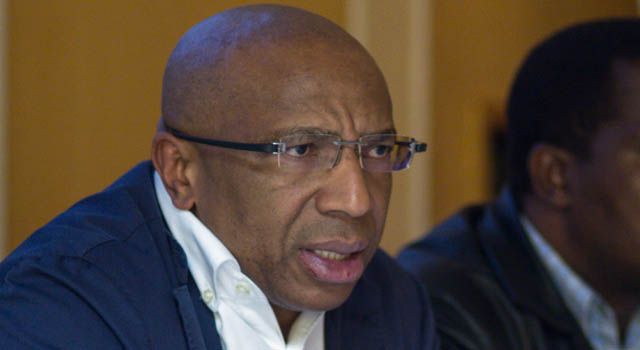
Executives at Telkom are taking home higher pay, while its lower level employees face job cuts and possible salary freezes.
For the financial year to 31 March 2015, CEO Sipho Maseko’s total remuneration jumped to R12,3m from R11,7m in 2014, according to Telkom’s 2015 annual report. This means Maseko earned more than Vodacom CEO Shameel Joosub, who took home R10,9m in total remuneration for the same period, according to Vodacom’s annual report for 2015.
Breaking down Maseko’s 2015 remuneration further, the Telkom annual report explains that he earned R7m as a guaranteed package, R5,2m as part of short-term incentive or bonus pay and R11 994 in fringe and other benefits.
Meanwhile, Maseko has also been awarded R5,2m in shares at Telkom since 2013, according to the report.
The report further indicates that Telkom’s new chief financial officer Deon Fredericks received total remuneration of R8,6m for the year ending March 2015. Broken down, Fredericks earned a R4,2m guaranteed package, R3,2m as a short-term incentive and R1,1m in fringe and other benefits.
Telkom’s former CFO Jacque Schindehütte — who was suspended in October 2013 and then stepped down in August 2014 — earned R18,8m for the period ending 2015, more than Maseko.
In a note on the report, Telkom said that Schindehütte received a short-term incentive payment of R1,2m for the 2014 financial year, while his long-term incentive payments for both 2014 and 2015 amounted to R10,3m. Schindehütte also earned payment for 25 accrued leave days of R656 181.
In addition, another eight nonexecutive directors at Telkom took home more pay during the 2015 financial year when compared to 2014. Telkom chairman Jabu Mabuza earned total remuneration of R1,5m, higher than the R1,4m he received in 2014.
Overall, total remuneration to nonexecutive Telkom directors increased from R8,6m to R8,7m.
The increase in Telkom executives’ pay has come amid stronger revenues at the company.
According to Telkom’s financial results for the period ending March 2015, the company’s net revenue increased by 3,1% during the period to R26bn. The company further added that its group operating revenue increased by 1,2% to R31,6bn, up from R31,2bn for the year ending March 2014.
Telkom also reinstated its dividend while the company’s share price has surged past the R50 mark in the last two years.
However, Telkom has also been engaging in cost-cutting measures amid its core fixed-line voice revenues having decreased by 13,5% during the 2015 financial year, to R6,8bn from R7,9bn in March 2014.
“We have taken out quite a lot of inefficiency, which is reflected in the 5,2% reduction in real terms in our operating costs,” said Telkom CEO Sipho Maseko in the annual report.
Telkom’s big plan to reduce costs further lies in its intention to axe over 4 000 jobs and outsource over 3 000 employees as part of an enterprise development plan.
The planned job cuts, though, were dealt a blow earlier this month when the Johannesburg labour court ordered Telkom to halt its section 189 process which deals with planned retrenchments at the company. The judgment was handed down after trade union Solidarity brought the matter to court.
The court ordered that Telkom needs to consult further with unions, such as Solidarity, before going ahead with the move.
Subsequently, on 13 July, Telkom said that in the meantime it is looking for alternatives ways to reduce labour costs, some of which include offering all non-union workers voluntary severance packages or early retirement.
The company is also said to be considering implementing a wage freeze, a shorter working week and outsourcing more functions, according to a Reuters report. — Fin24
- See also: Telkom paid ex-CFO Schindehütte R18,8m




